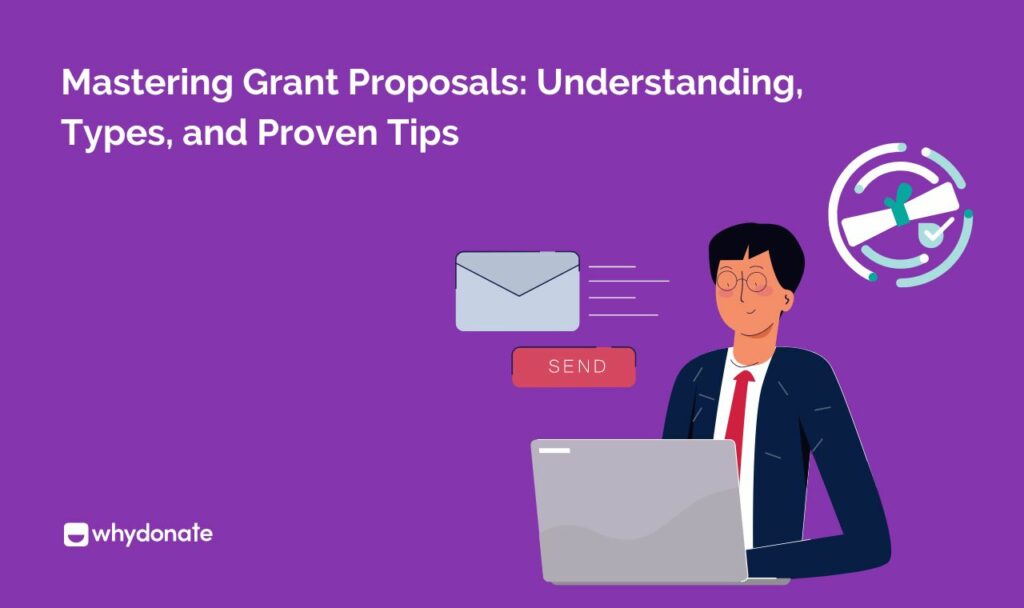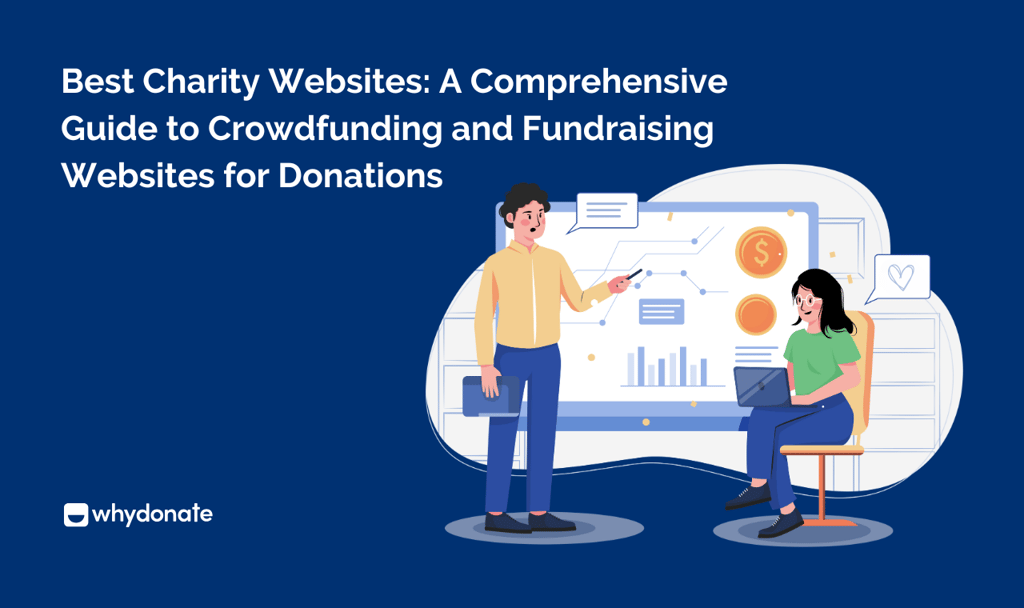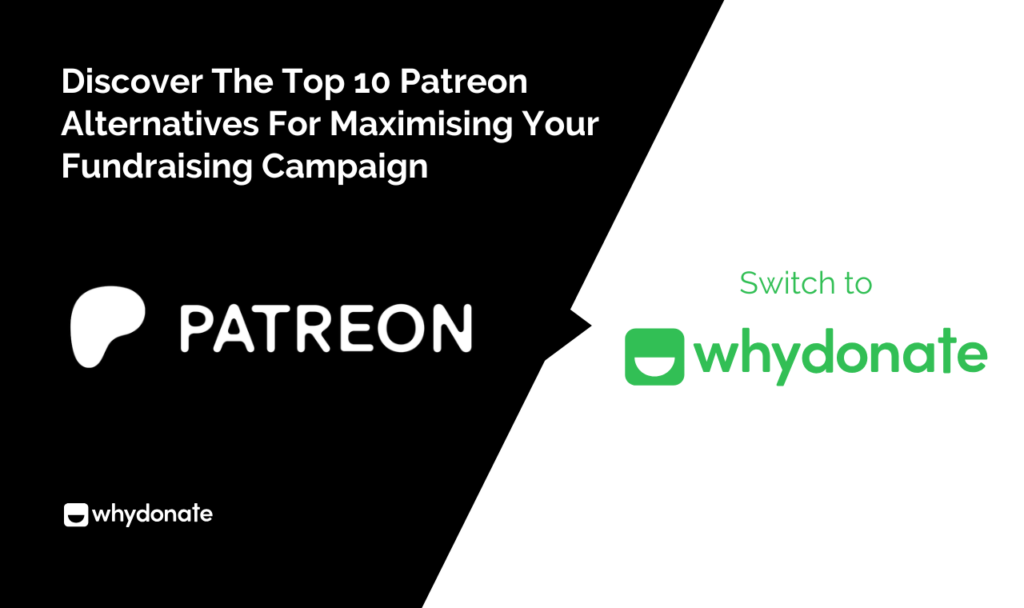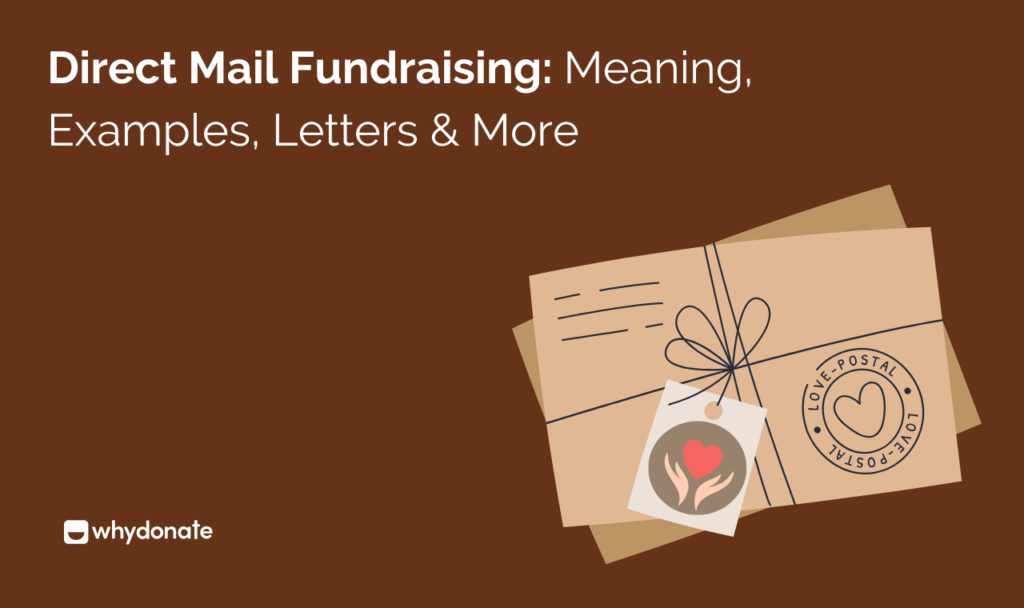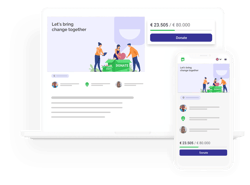If you want to run a project, planning, structure, methods, objectives, and investment are involved. Here, we will talk about the investment part, which is crucial as well as the inevitable one. Without huge funds or capital investment, the roadmap to the project starts blurring. For that, there is a thing called ‘Grant Proposal’.
- Wish To Ease The Financial Burden? Start A Fundraising Campaign For Free At WhyDonate!
This is the ultimate solution to cover your financial problems and to execute your goals. But first, you need to know more about grant proposals and how they work, as they can primarily benefit you once you know their significance and functions.
Table of Contents
What Is Grant Proposal?
A grant proposal is a request made through an application for investment or financial support in a nonprofit organization. Here, the word ‘grant’ means the amount of money the funder/investor offers to the organization. The receiver is called the ‘grantee’, who gets the money.
Not only in the area of big companies, but one can use this grant proposal to get some monetary aid from the concerned authorities. For example, a student can approach the educational institute with a grant proposal. This is how it works.
What Are Different Types Of Grants?
There are different types of grants. Here, we’ve discussed the primary ones:
1. Project/Program Grants
This grant proposal requests support for a specific project or program that outlines a vital purpose. It requires you to think beyond the grant and mainly focus on the purpose and objectives of your project and how the grant can assist you in fulfilling the referenced purpose.
2. Capital Grants
To fund your projects or to execute your plan, you need capital or investment on a large scale. Money is something that you will require almost at every stage. To cover this expenditure, a capital proposal is made. It connects you with investors and convinces them to fund your project.
3. General Operating Grants
Apart from the project and capital funds, sometimes a need may arise to fund less specific operations and management of the project. To financially operate these in-between or ongoing functions, you can use General Operating Grants’ help. This is another type of grant commonly used for the past few years.
4. Matching/In-Kind Grants
This grant also demands some percentage of share or contribution from the grantee’s side. It may be shared regarding equipment, personnel, goods, etc. In this grant, collaborative efforts are key. This also enhances the strengthened partnership between the two parties. It’s highly valuable and provides significant benefits.
The Most Common Myths About Nonprofit Grants
Some told or untold myths follow every existing concept. Similarly, nonprofit grants also hold certain myths. Let’s see what are those:
- The first and widely known myth about grants is that they are ‘free money’, which is totally misunderstood. Grants come with a pack of full-fledged terms and conditions that are strictly bound to follow. Failing which, the given money can be seized or even lead to jail time.
- Secondly, it’s easy to access grants, and you need to apply. However, the fact is that competition is everywhere. You need to stand more precisely than others in the line; only then do you seek the opportunity for grants.
- Thirdly, it’s considered that if you win in meeting the deadlines proposed by the grantor, it automatically gets you success in having grants in your hands. Breaking this misconception, the quality of your proposal matters more than anything. You can’t send a low-quality proposal just to meet the deadlines.
- Moreover, it’s often said that grants are awarded to those with the highest or most significant need. Here, the fact is that grants are most likely offered to those who share similar interests with the agency. So, we can say that many others are involved, such as credibility, commitment, integrity, etc.
- Lastly, it’s said that you can apply the same proposal to multiple grantors, and any of them will definitely show interest. Well, agencies and foundations indeed communicate with each other. If you are caught using the same proposal for every other grantor, it may lead to unpleasant results. Grantors won’t appreciate this and will step back from funding you.
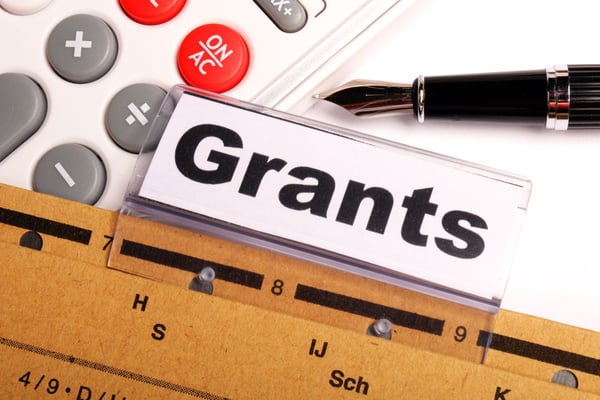
How To Write A Grant Proposal?
To write a successful grant proposal, you must be careful about many key points and the content you are inserting. Let’s understand this more precisely through 8 essential points:
1. A Cover Letter
It works as an introduction to your proposal and a brief description. Here, you give a little detail on every upcoming part of the proposal so that the grantor can get a subtle idea of what the proposal includes. Hence, it is an integral part of any grant proposal and must be considered carefully.
2. Executive Summary
This part doesn’t contain precise information. Instead, it summarises the entire grant proposal. Here, you can add the reason behind asking for funding, your overall organizational mission, and how your current project can positively fulfill your goals and objectives.
3. Statement of Need
This part outlines the issue you are trying to solve through your project. Here, you deeply dive into the in-depth information on the issue you are trying to tackle with your project. Grantees are also eager to know and want to ensure their money is worth investing in a project.
4. Mention Objectives And Goals
Every project is set with specific goals and objectives to accomplish. Including these positive and effective goals brightens your grant proposal. This tells the grantors what purposes or changes their money is being used for and what outcomes they can expect through projects. So, mention a detailed analysis of your objectives or goals.
5. Talk About Methods And Strategies
The next step you can include is mentioning the roadmap and methods or strategies you will use to achieve the target. Grantors are very interested in knowing your methods to determine whether you get some positive outcomes out of your project so that their given grant can hold some value.
6. Plan of Evaluation
To win credibility, it’s a must to let your grantor know your detailed evaluation plan. You need to show the funder some realistic measures and timelines of your project and how the grantor spent money on the project. It boosts the integrity of the relations.
7. Describe A Budget
It’s detailed information on how and where the money is invested in the project. Generally, it’s a table or long description elaborating on the areas where funds are attached. This section is equally essential as the others, so don’t avoid mentioning your project’s budget.
8. Sustainability Plan
- Describes how the project or its impact will be maintained after grant funding ends.
- Addresses ongoing resources, partnerships, or additional funding strategies.
- Assures funders of the long-term value of their investment.
9. Your Organizational Information
This section contains personal information about the organization to which a grantee is giving the funds. The grantor should know to whom it is getting into a collaboration or partnership and their workings. It includes the names, past achievements, backgrounds, services, mission and objectives of the organization, etc.
10. Attachments and Appendices
- Includes supplementary information such as resumes, letters of support, and financial statements.
- Provides necessary evidence to reinforce the proposal’s claims.
- Meets funder-specific requests for additional documentation.
Best Practices for Writing a Grant Proposal:
- Align with funder’s mission: Demonstrate clearly how your project supports the funder’s priorities.
- Be concise and clear: Use simple, precise language that conveys your ideas effectively.
- Follow guidelines meticulously: Adhere strictly to the funder’s formatting and submission instructions.
- Use data and evidence: Provide relevant statistics, references, and examples to support your claims.
- Highlight impact: Clearly articulate the potential benefits and outcomes of the project.
- Edit and review: Proofread rigorously for clarity, coherence, and accuracy.
In A Nutshell
Writing a grant proposal demands hefty time and consideration from you. They are not a piece of cake; it takes lots of effort, analysis, and research to justify your request for funding. In addition, from the professional to the personal level, you must build a smooth and cordial partnership with your investor. Add every relevant little detail precisely, making every word stand and speak for your project. Grant proposals will benefit you immensely once you know their significance and how to write them to fetch investment.
- Get Relief From Financial Burden Today With WhyDonate. Start A Fundraiser For Free!
FAQs (Frequently Asked Questions)
What are grants?
Grants are the sum of money requested by the one who writes a grant proposal to a grantor to operate their project.
How do you write a good grant proposal?
A good grant proposal includes all necessary aspects like the cover letter, executive summary, missions and objectives, need of statement, etc. It should contain similar interests to those of investors.
What is the use of a grant proposal?
Grant proposals are used to request funding from investors for your targeted large-scale project. It provides you with monetary or economic aid.
How long does it take to write a grant proposal?
Generally, if the grant proposal has a straight and basic plan, you may meet its end in 4-5 hours, but if it’s a bit complex, it may take 20-30 hours and even more.
How to review a grant proposal?
A grant proposal review can be done by following the following main steps: application, programmatic, and financial review.
